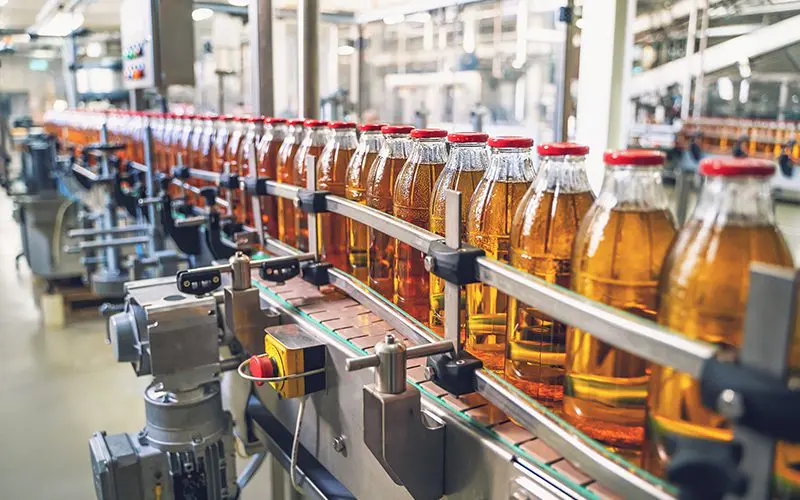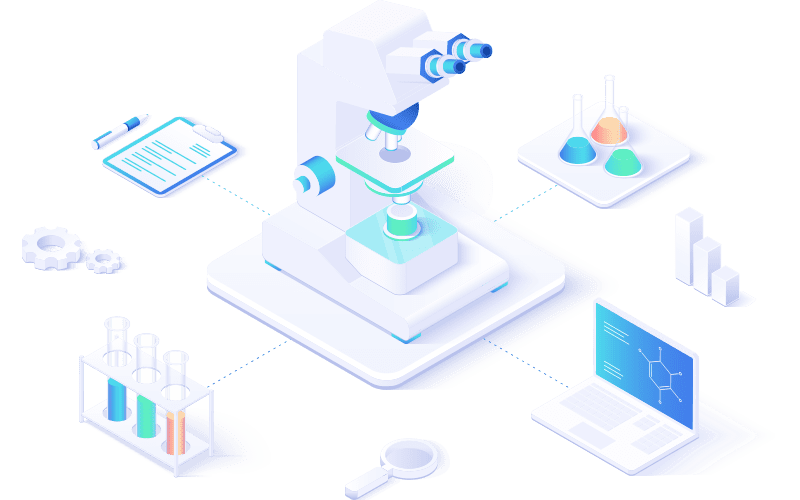Optimize Manufacturing Lab Performance with Specialized Lab Management Solutions
LabLynx drives manufacturing labs to excel by streamlining data management, enhancing productivity, and ensuring quality control, empowering your lab to consistently deliver reliable, high-quality results in every production cycle.


Transform Production and Quality Standards Across Manufacturing Industries
Don’t let outdated processes slow your production—explore how our customizable LIMS solutions can drive efficiency, quality, and compliance in your manufacturing lab.
Manufacturing LIMS with a Focus on Quality Control and Compliance
Manufacturing labs face critical demands, from maintaining stringent quality control standards to managing extensive data across production cycles. LabLynx Manufacturing LIMS is equipped with advanced quality control features and adaptable workflows designed to meet the specific needs of manufacturing environments, ensuring consistent compliance with industry regulations and improving overall operational efficiency.
With LabLynx, manufacturing labs gain a robust solution that streamlines data tracking, automates batch reporting, and supports rapid, informed decision-making. Our Manufacturing LIMS is crafted to provide unmatched support for quality management and compliance, helping your lab stay efficient and reliable while delivering consistent, high-quality results across every product line.

Don’t let a one-size-fits-all solution hold your lab back—discover how our customizable LIMS can transform your operations.
Essential Lab Management Features for Manufacturing Labs
Manufacturing labs require precise, reliable, and highly regulated systems to ensure quality control, streamline workflows, and maintain compliance with industry standards. LabLynx’s Manufacturing LIMS offers essential features that are tailored to meet these unique needs, enhancing data accuracy, optimizing productivity, and supporting compliance across the manufacturing process. Below are key categories and features designed to empower manufacturing labs with LabLynx LIMS.
Quality Control & Compliance
Automated Quality Control Checks
Ensure every batch meets your lab’s quality standards with automated QC checks, reducing manual error and improving product reliability.
Audit Trail Tracking
LabLynx LIMS provides comprehensive audit trails, logging every change to ensure compliance and transparency in your manufacturing processes.
Document Management
Organize, store, and access important regulatory documents with ease, keeping your lab prepared for audits and maintaining compliance.
Production & Workflow Optimization
Batch Processing Automation
Automate batch processing to speed up production workflows and ensure consistency across large-scale manufacturing cycles.
Sample Tracking
Track samples through every stage of production, from raw materials to finished products, ensuring complete traceability.
Real-Time Production Monitoring
LabLynx LIMS enables real-time monitoring of production metrics, helping labs adjust processes quickly to maintain efficiency.
Data Management & Reporting
Centralized Data Storage
Securely store all lab data in one centralized location, ensuring easy access and protecting critical information across the production lifecycle.
Automated Reporting Tools
Generate detailed, regulatory-compliant reports automatically, saving time and supporting data-driven decision-making in production.
Data Validation & Integrity Checks
Maintain data accuracy with built-in validation tools that verify data at each stage, supporting reliable results in manufacturing.
Inventory & Resource Management
Inventory Tracking & Management
LabLynx LIMS tracks inventory levels in real time, helping labs maintain optimal stock and avoid production delays.
Reagent & Material Expiry Alerts
Get automatic alerts for reagent and material expiration dates, ensuring that only quality resources are used in production.
Resource Allocation Tools
Optimize resource use by allocating materials and equipment effectively, helping to streamline production and reduce waste.
Discover How LabLynx Boosts Your Manufacturing Lab’s Performance and Efficiency
"*" indicates required fields
LabLynx LIMS Suite for Manufacturing Labs






